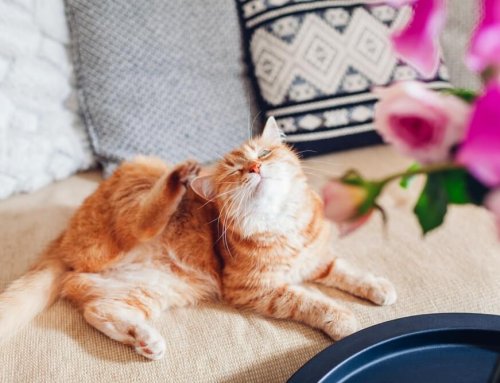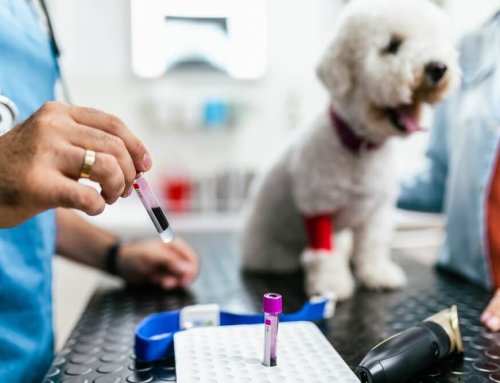Numerous pets are presented to urgent care facilities and emergency clinics every year, and while you cannot prevent many situations, you can take some precautions to decrease your pet’s risk. Our team at 360 Pet Medical wants to provide tips to prevent common pet emergencies and help safeguard your pet.
#1: Keep your cat inside
Indoor cats typically live longer, healthier lives than outdoor cats. An indoor cat’s life expectancy is about 10 to 15 years, while an outdoor cat usually lives two to five years. Potential emergency situations they can face while roaming outside include:
- Road traffic accidents — Outdoor access cats are commonly injured or killed when hit by a vehicle.
- Animal fights — Outdoor cats risk attack by other cats, dogs, or wild animals.
- Ingesting poisons — Roaming cats are more commonly exposed to life-threatening toxins, such as rat bait and antifreeze.
- Malicious pranks — Unfortunately, some people have cruel intentions, and outdoor cats can be their target for malicious pranks.
#2: Keep your dog on a leash when out for walks
Ensure your dog is leashed to prevent incidents such as vehicular accidents. Approximately 1.2 million dogs are killed in traffic collisions every year, and many more are severely injured when they are hit by a vehicle. Other considerations include ensuring your dog’s collar is well-fitted, and using a harness-style collar if your dog is prone to escape. Keeping your dog leashed can also protect them from aggressive dogs and wildlife, and will allow you to better monitor what they investigate and ingest.
#3: Keep your pet cool
Pets don’t sweat like humans, and must rely on less efficient means, such as panting, to keep them cool. This means they are at higher risk for heatstroke, a life-threatening condition that causes severe inflammation throughout the pet’s body. Steps to protect your pet from this veterinary emergency include:
- Keeping your pet hydrated — Ensure your pet has access to multiple fresh water sources, and take bottled water and a bowl so you can offer them a drink frequently when you go on an outing.
- Providing shade — Ensure your pet always has access to shade when they are outside on hot, humid days.
- Avoiding exercise — Limit your pet’s outdoor activities on hot, humid days, and walk them during the early morning and late evening hours to avoid the hottest conditions.
- Taking multiple breaks — When outside with your pet, take frequent breaks in shady, well-ventilated areas to ensure they don’t overheat.
- Never leaving your pet in an unattended vehicle — Temperatures inside a parked car can skyrocket on warm days, endangering your pet. Never leave your pet alone in an unattended vehicle.
#4: Keep your pet from ingesting a toxin
Numerous common foods and household items are toxic to pets, who can suffer life-threatening consequences if they ingest a poisonous substance. Tips to protect your pet include:
- Know which substances are toxic to pets — Do your research so you know what substances are pet toxins.
- Keep your medications secured — Many over-the-counter and prescription medications are toxic to pets. Ensure your pet doesn’t have access to your medications, and go in a separate room and close the door when taking a medication, to ensure they don’t eat a dropped pill from the floor.
- Read the label — Read the label on any food you offer your pet to ensure the product doesn’t contain a pet-toxic ingredient.
If you know or suspect your pet has ingested a poison, call 360 Pet Medical or Animal Poison Control for expert advice on caring for your pet.
#5: Keep your pet from ingesting a foreign object
Ingesting a foreign object, such as a sock or small toy, that causes a gastrointestinal obstruction is a common veterinary emergency. Tips to prevent your pet from swallowing an inappropriate item include:
- Ensure your pet’s toys are the appropriate size — Never offer your pet a small toy that they can easily swallow.
- Ensure your pet’s toys are durable — Ensure your pet cannot easily damage a toy to prevent them from swallowing small pieces.
- Ensure your pet has appropriate toys — Offer your pet appropriate toys so they don’t chew off-limits objects.
- Ensure your house is tidy — Remove all small objects from your pet’s environment to prevent them from swallowing an inappropriate item.
#6: Keep your pet’s preventive care up to date

Regular preventive care can protect your pet from veterinary emergencies, preventing life-threatening situations. Factors include:
- Wellness visits — Pets should be evaluated by a veterinarian at least once a year. Conditions are easier to treat in the early stages before they become a veterinary emergency, and early detection provides a better prognosis for your pet.
- Vaccinations — Routine vaccinations protect your pet from serious infectious diseases that can lead to emergency situations.
- Parasite prevention — Parasites, such as heartworms, can cause serious emergency situations. Provide year-round parasite prevention medication to protect your pet.
- Dental care — Dental disease can lead to conditions such as loose, painful teeth, tooth root abscesses, and organ damage when the oral bacteria gets in the pet’s bloodstream. Regular dental care, such as a professional veterinary cleaning, prevents these issues from becoming a problem.
You cannot protect your pet from every veterinary emergency, but these tips will help decrease their risk. If your pet experiences a veterinary emergency, contact our team at 360 Pet Medical, so we can get them the care they need.








Leave A Comment